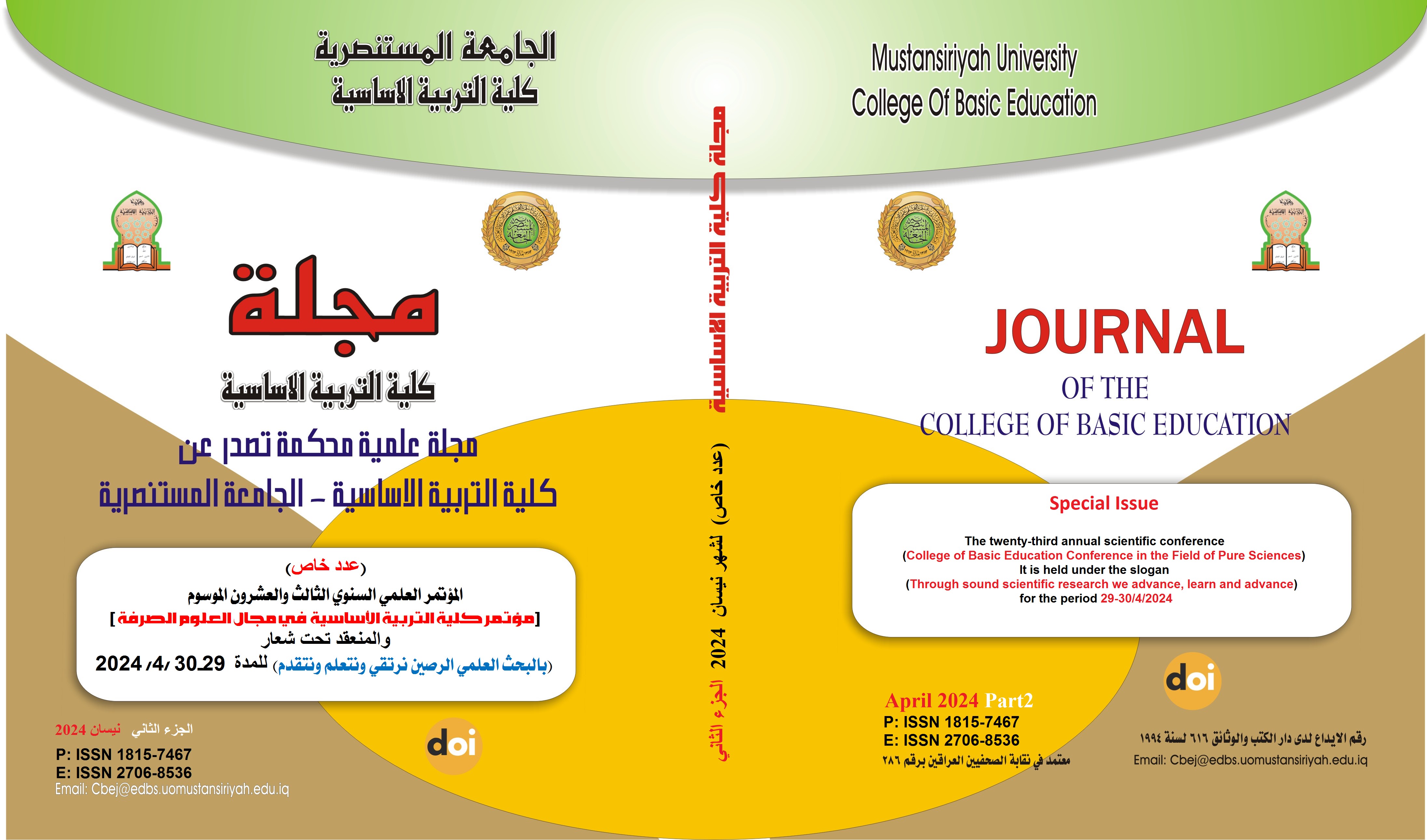The Effect Of Lorsbach Model On Cognitive Achievement In Chemistry Among Second Grade Female Students
Main Article Content
Abstract
The current research aims to investigate the impact of the Lorsbach model on cognitive achievement in chemistry among second-grade female students. To achieve this goal, the researcher employed a quasi-experimental design with partial control. The experimental group and the control group were determined using a post-test-only design. The research population consisted of second-grade female students from governmental daytime intermediate schools in Baghdad/Al-Rusafa Second for the academic year (2023-2024). Baghdad Girls Intermediate School was intentionally selected as the research sample. Two classes were randomly selected from a total of four classes, with one representing the experimental group (31 students) taught according to the Lorsbach model, and the other representing the control group (33 students) taught using conventional methods, resulting in a research sample of 64 students. The equivalence of the two research groups was verified through several variables, including the Raven's Progressive Matrices test, previous academic achievement, and previous chemical knowledge test. The research tool consisted of a 40-item objective achievement test of multiple-choice type. Its face validity was confirmed by presenting it to a group of experts in science teaching methods and chemistry. Content validity was ensured by matching the test content and obtaining agreement among experts. Item difficulty, discrimination index, and effectiveness of distractors for each test item were calculated using appropriate equations. Test reliability was determined using the Kuder-Richardson Formula 20. The research results indicated an impact of the Lorsbach model on the achievement of second-grade female students in favor of the experimental group. Based on the research findings, the current study drew some conclusions and provided recommendations and suggestions for further research.
Article Details

This work is licensed under a Creative Commons Attribution-ShareAlike 4.0 International License.
